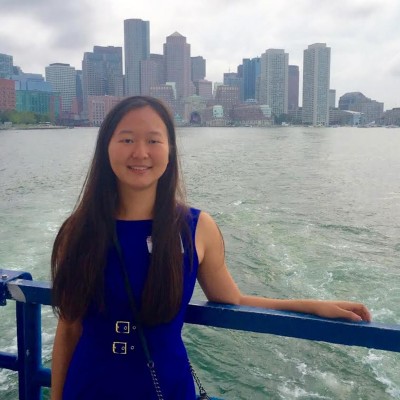
In the midst of a world mediated by Facebook, LinkedIn and Twitter, a new social networking platform has arisen — this time, geared specifically toward scientists.
Kynplex is a startup co-founded by Grace Xiao and Raul Jordan, former Harvard University undergraduates, to facilitate scientific communication and provide accurate updates on the latest scientific developments.
Xiao and Jordan came up with the idea while looking for a research lab to join. They realized that scientific information was scattered across multiple sites, making it difficult to find the latest updates on scientific progress.
Xiao said she envisions Kynplex as a way to consolidate scientific information into one place. This year, the two received the Thiel Fellowship, a two-year program that grants $100,000 to young entrepreneurs to skip out of college and build their companies, full time.
“[There are] so many trends that are pointing toward better communication through leveraging online technologies,” Xiao said. “That’s exactly the kind of thing we’re trying to do with Kynplex.”
Kynplex is a social media site that features profiles of labs and active projects of researchers in the Boston area. So far, about 600 labs have signed up for the service, Xiao told The Boston Globe. Individuals looking to participate in research can search specific areas of interest, such as genetics or biology, and find labs accordingly. The goal is to pair up interested collaborators with top researchers.
Xiao was able to build her startup thanks to Harvard’s support for student entrepreneurship. She cites The Harvard Innovation Lab (i-lab) as an important catalyst for helping the idea of Kynplex become a reality.
“It helped so much,” Xiao said. “The i-lab is amazing, especially when students are initially trying to churn an idea into a startup. [It] really provided a lot of support when we were getting Kynplex off the ground.”
Xiao also credited an entrepreneurship course at Harvard, “Startup R&D,” as a key influence on Kynplex, as well as the instructor, Paul Bottino, whom Xiao called “one of the most prominent advocates for student entrepreneurs.” The course teaches students how to be startup founders, providing an experience that allows them to practice entrepreneurship and develop their skills in handling businesses and organizations.
“The value is in practicing,” Bottino said. “Entrepreneurship is a practice and it’s great to practice with people who are also practicing. In this course, students work on entrepreneurship skills in group sessions as well as one-on-one coaching with the instructor.”
Outside of Harvard, Xiao leveraged the wealth of resources around Boston to build it into a full-scale company. She was part of the Student Fellows program at .406 Ventures, a Boston-based venture capitalist firm. The program helps a few student entrepreneurs build up their startups by providing them with real-world skills and networks.
Rob McCall, a co-coordinator of the Student Fellows program and senior analyst at .406 Ventures, said Xiao immersed herself within the program and took advantage of the many opportunities the program offered her.
“Grace was incredible,” McCall said. “She was always receptive to the advice that we had, but was also very helpful and hands-on to the people we had in the network that we’re seeking.”
Xiao also praised Boston itself as a “hub of academic research and startup ventures” that made it easier for her to create a startup like Kynplex.
“We love Boston,” Xiao said. “Everything is so close, and everyone that we need to meet with is on the Red Line.”
Particularly for Kynplex, a science-based startup, the density of research institutions in Boston has given it a jumpstart on its market.
“You need access and proximity to your market, and that’s what [Xiao and Jordan] got,” Bottino said. “They were able to talk to researchers every day about what they were building and get instant feedback on their product. That would be very difficult to do if you weren’t around the research theme.”
McCall echoed these sentiments.
“She’s plugged into a really interesting community [in Boston] where she can launch Kynplex and sign up all the colleges and companies around here and already be off to a great running start,” McCall said. “Once she is able to prove out that success, it’s going to be much easier to expand to [a place where] the concentration of [research and innovation] isn’t as dense.”
Xiao urged both the scientific world and the general public to stay tuned as Kynplex prepares for its launch. The startup is currently working to coordinate corporate and academic players to align common interests in the research world.
“It’s crazy that science drives technological progress and quality of life, and it also builds on past discoveries, yet the communication is so scattered and inefficient,” Xiao said. “We believe that at Kynplex we can tackle a lot of [these obstacles] and make it possible for ideas to become drugs and treatments that have direct impact.”




